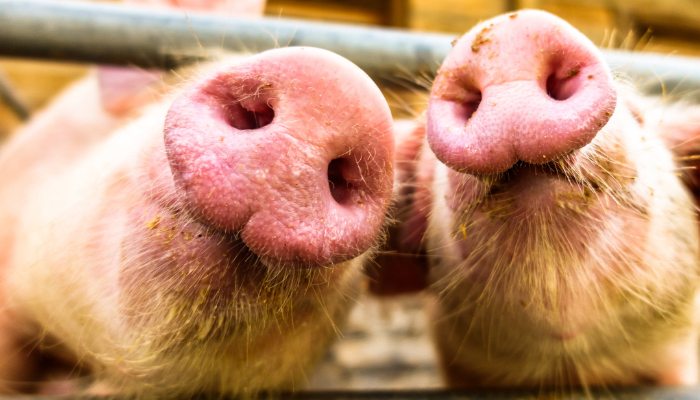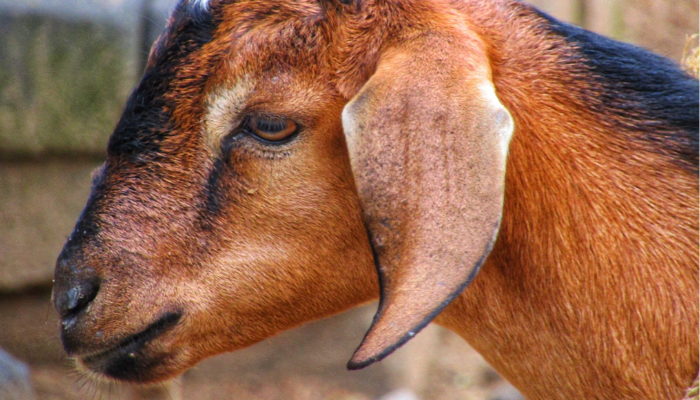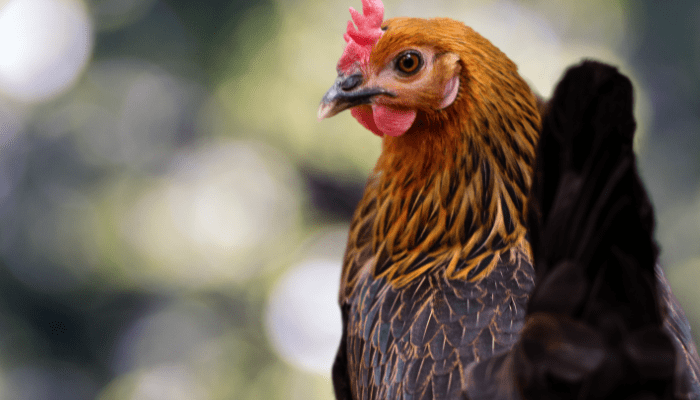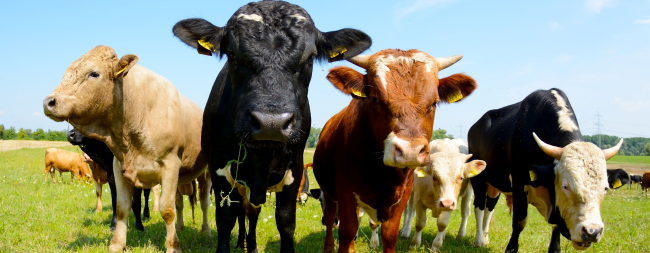This blog was submitted by Danielle Legault, a VETS Program Officer at Veterinarians Without Borders. She completed her Master of Arts in Geography at York University where she researched the significance of food animals in Canadian-funded international development initiatives. She will present on this topic at the Canadian Association of Geographers Annual Meeting at Memorial University of Newfoundland on August 16th, 2024.
Across the planet, livestock support the livelihoods of nearly one billion people. In the Global South, animals such as cattle, goats, and chickens are integral members of upwards of 70% of rural poor households, providing food, income, labour, and companionship.
At Veterinarians Without Borders (VWB), we recognize the vital roles these animals occupy in sustainable development, and since I joined the organization, I have been fortunate to witness this dedication in action.
Prior to joining VWB, I spent five years as a researcher investigating the global impacts of international development interventions. After a thought-provoking Animal Studies course, I began to wonder, “if animals have such important impacts on human outcomes, where are the animals in international development?”
This question led me into a master’s degree, where, in my thesis, I researched the significance and roles of animals in Canadian international development initiatives. My research spanned 70 years of intervention history, and allowed me to speak with veterinarians, animal researchers, development practitioners, and One Health experts.
This blog presents my key takeaways from this research, shedding light on the transformative impact animals have in international development and highlighting the importance of integrated approaches for global wellbeing.
Key Takeaway #1: Animals are integral to international development but often overlooked
At its core, international development seeks to improve human wellbeing through global cooperation. Agriculture and aquaculture are recognized as essential to achieving these development outcomes and achieved through projects that increase human nutrition, provide income-generating opportunities, and prevent the spread of disease.
However, despite the importance of animals to development–in both study and in practice–much of development has been fundamentally human-centered, looking to improve human wellbeing, sometimes at the expense of environmental and animal wellbeing.
While sustainable development frameworks have emerged to take more holistic approaches to the environment, animals in agriculture and aquaculture systems have been sidelined, such as in the 2030 Sustainable Development Goals, where food animal health and welfare are never explicitly mentioned.
Sometimes, animals' contributions are invisible altogether. In my case study of a large Canadian-funded development initiative centered on food security, I was informed that the initiative wasn’t about animals, yet I encountered 50 different animal species implicated across the projects in some capacity.



Key Takeaway #2: Animals are changemakers
Animals have the power to shape human outcomes and experiences, often acting as catalysts for significant positive impacts on wellbeing, and thus, can be considered as changemakers.
This significance is especially vital to people in the Global South, where livelihoods are more like to be closely entangled with animals who are relied on for personal subsistence, transportation, employment and income. There are numerous examples of animals in development projects generating powerful and intersectional outcomes; increasing food security, influencing gender dynamics, increasing human nutrition through meat, dairy, and eggs, and enriching gardens through their manure.
In an interview with an animal researcher in East Africa, they shared with me that animal centered initiatives have the power to unite people; with shared values in animal care bringing people together to make lives better for animals and people alike, simultaneously fostering local and international communities of care.
Key Takeaway #3: Integrated approaches are integral to global wellbeing
One of the benefits of historical analysis is that you can see what has worked in the past, what has failed, and how trends emerge. In 70 years of Canadian-funded international development initiatives, the animals involved in projects, and the types of projects taking place has varied to align with global trends in agriculture and domestic politics.
Integrated approaches, such as One Health, emerged to address shortcomings of singularly focused interventions, providing a holistic approach to look at large, complex world issues in collaborative ways. While humans have been, and continue to be central to international development, integrated approaches such as One Health bring action to the inherent interconnections between animals, people, and the environment. We are, after all, animals ourselves, and when thinking about the world, it is vital to recognize these interconnections for truly sustainable development.
Looking Forward
It is undeniable that animals play diverse and critical roles in international development. From providing food and income to fostering emotional bonds and contributing to environmental health, their impact is profound and far-reaching.
Organizations like VWB, that sit in a unique niche among Canada’s international development organizations, are demonstrating the importance of integrating animals into development strategies, recognizing that the wellbeing of animals and humans and our environments are deeply interconnected.
By adopting holistic, integrated approaches such as One Health, VWB is advocating for a vision of global wellbeing that has the potential to greatly advance sustainable development.
Ultimately, including animals in development efforts enables us to create more comprehensive and sustainable solutions that benefit all of Earth’s communities, both human and animal.





